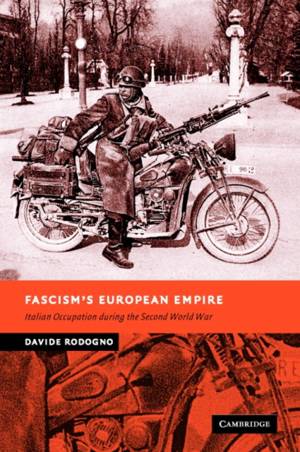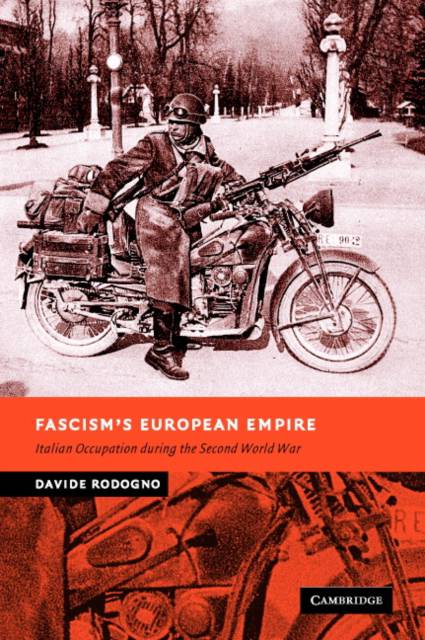
- Afhalen na 1 uur in een winkel met voorraad
- Gratis thuislevering in België vanaf € 30
- Ruim aanbod met 7 miljoen producten
- Afhalen na 1 uur in een winkel met voorraad
- Gratis thuislevering in België vanaf € 30
- Ruim aanbod met 7 miljoen producten
Zoeken
€ 266,95
+ 533 punten
Omschrijving
This 2006 book is a controversial reappraisal of the Italian occupation of the Mediterranean during the Second World War, which Davide Rodogno examines within the framework of fascist imperial ambitions. He focuses on the European territories annexed and occupied by Italy between 1940 and 1943: metropolitan France, Corsica, Slovenia, Croatia, Dalmatia, Montenegro, Albania, Kosovo, Western Macedonia, and mainland and insular Greece. He explores Italy's plans for Mediterranean expansion, its relationship with Germany, economic exploitation, the forced 'Italianisation' of the annexed territories, collaboration, repression, and Italian policies towards refugees and Jews. He also compares Fascist Italy and Nazi Germany through their dreams of imperial conquest, the role of racism and anti-Semitism, and the 'fascistization' of the Italian Army. Based on previously unpublished sources, this is a groundbreaking contribution to genocide, resistance, war crimes and occupation studies as well as to the history of the Second World War more generally.
Specificaties
Betrokkenen
- Auteur(s):
- Vertaler(s):
- Uitgeverij:
Inhoud
- Aantal bladzijden:
- 562
- Taal:
- Engels
- Reeks:
Eigenschappen
- Productcode (EAN):
- 9780521845151
- Verschijningsdatum:
- 21/08/2006
- Uitvoering:
- Hardcover
- Formaat:
- Genaaid
- Afmetingen:
- 160 mm x 230 mm
- Gewicht:
- 997 g

Alleen bij Standaard Boekhandel
+ 533 punten op je klantenkaart van Standaard Boekhandel
Beoordelingen
We publiceren alleen reviews die voldoen aan de voorwaarden voor reviews. Bekijk onze voorwaarden voor reviews.











